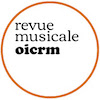-
Vol. 5 nº 1, février 2018
In this essay, I argue that the operas discussed by Nicolodi merit closer examination: not only do they present a more fraught relationship with fascist ideology than has been hitherto suggested, but, as I will show, they also express the changing relationship between opera and film at a time when one medium increasingly encroached upon the territory of the other. During the 1930s, the dissemination of sound pictures brought music and singing onto the screen, taking away opera’s final prerogative. This period thus offers an ideal opportunity to investigate the changing relationship between opera and film, as well as the connection of both media to fascist ideology. Indeed, the 1930s saw an increase in the Fascist regime’s involvement in cultural life and propaganda, accentuated by the materialization of Benito Mussolini’s imperialistic ambitions, which culminated in the Italo-Ethiopian War (1935–1936). The implementation of discriminatory laws against Italian Jews (known as the “leggi raziali”) in 1938 and the start of the Second World War the following year brought many changes to the Italian cultural landscape, creating a natural boundary to the scope of this study.
ISSN : 2368-7061
© 2025 OICRM / Tous droits réservés
